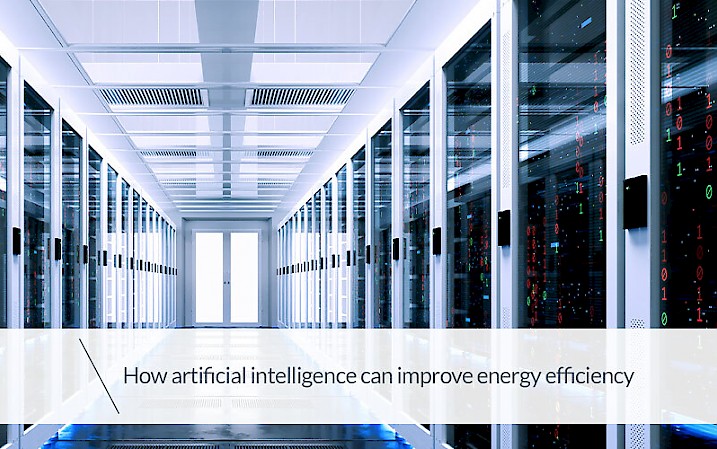
At present, artificial intelligence (AI) is emerging as one of the most promising technologies to optimise energy use and reduce waste, with both economic and environmental benefits.
Thanks to AI, it is now possible to improve energy demand forecasting, optimise industrial processes, manage smart electricity grids and reduce consumption in buildings and data centres, which account for a significant share of global energy demand.
The applications of AI for energy efficiency are both wide-ranging and continually expanding, demonstrating that this technology can transform the way we use and conserve energy resources.
Let's dive into the details together.
The impact of AI on energy efficiency
Artificial intelligence is revolutionising the efficiency of the energy sector, promoting a more sustainable consumption and reducing its environmental impact.
Recent trends show that AI is enabling significant energy savings in various areas, including data centres, smart grids, industry and the construction sector.
For example, data centres consume between 1-2% of global energy, a share that is constantly growing with the increase of digital services. Several companies, such as NVIDIA, have developed solutions that, thanks to AI inference, can reduce power consumption by up to 20 times compared to traditional processors. This approach has reduced costs and emissions, which is particularly relevant considering the power requirements of these computing centres, working around the clock to meet the constant demand for their services, often containing tens of thousands of devices that require uninterrupted power and cooling.
AI can also be a key element to improve the efficiency of smart grids, balancing energy supply and demand in real time, reducing waste and emissions, and enabling better distribution of energy from renewable sources.
In the industrial sector, AI is used to monitor and predict plant maintenance, improving overall energy efficiency. For example, the use of machine learning algorithms for energy control has led, in some implementations, to a reduction in consumption by up to 10%, with a positive impact on operating costs and the environmental impact of production activities.
Energy management of buildings is another area where AI is making significant improvements, reducing heating and cooling costs and helping to make large buildings more sustainable and less expensive to maintain.
The adoption of AI solutions for energy efficiency is leading to substantial reductions in energy consumption and emissions in several sectors, accelerating the transition to a more sustainable use of energy resources, with a potential positive impact on the climate and the economy.
Challenges and limitations
Despite the multiple benefits of artificial intelligence in terms of energy efficiency, there are several challenges and indeed limitations that businesses and governments face in its successful implementation.
Let us look at just a few:
- Technological and infrastructural limitations: many organisations lack the technological infrastructure required to integrate AI systems into their operations. This may include the lack of adequate hardware, such as powerful servers or advanced communication networks, which are essential to handle the volumes of data generated by AI. In addition, not all AI applications are market-ready, and some may require significant development and customisation before they can be used effectively.
- Data security and privacy risks: the use of AI involves the need to process large amounts of data, including sensitive information. This raises concerns about data security and privacy. Vulnerabilities in AI systems can be exploited by malicious actors, putting at risk not only corporate information, but also the privacy of users.
- Initial implementation and training costs: the implementation of AI solutions can require significant initial investments. These costs include not only the purchase of technology, but also the training of personnel and the modification of existing business processes to integrate new technologies. Small and medium-sized companies, in particular, may find it difficult to justify these investments, despite the potential long-term energy savings.
In short, while artificial intelligence offers promising opportunities to improve energy efficiency, it is crucial to address these challenges to ensure an effective and secure implementation. Companies and governments must work together to develop the necessary infrastructure, protect data and manage the costs associated with the transition to more efficient energy use.



